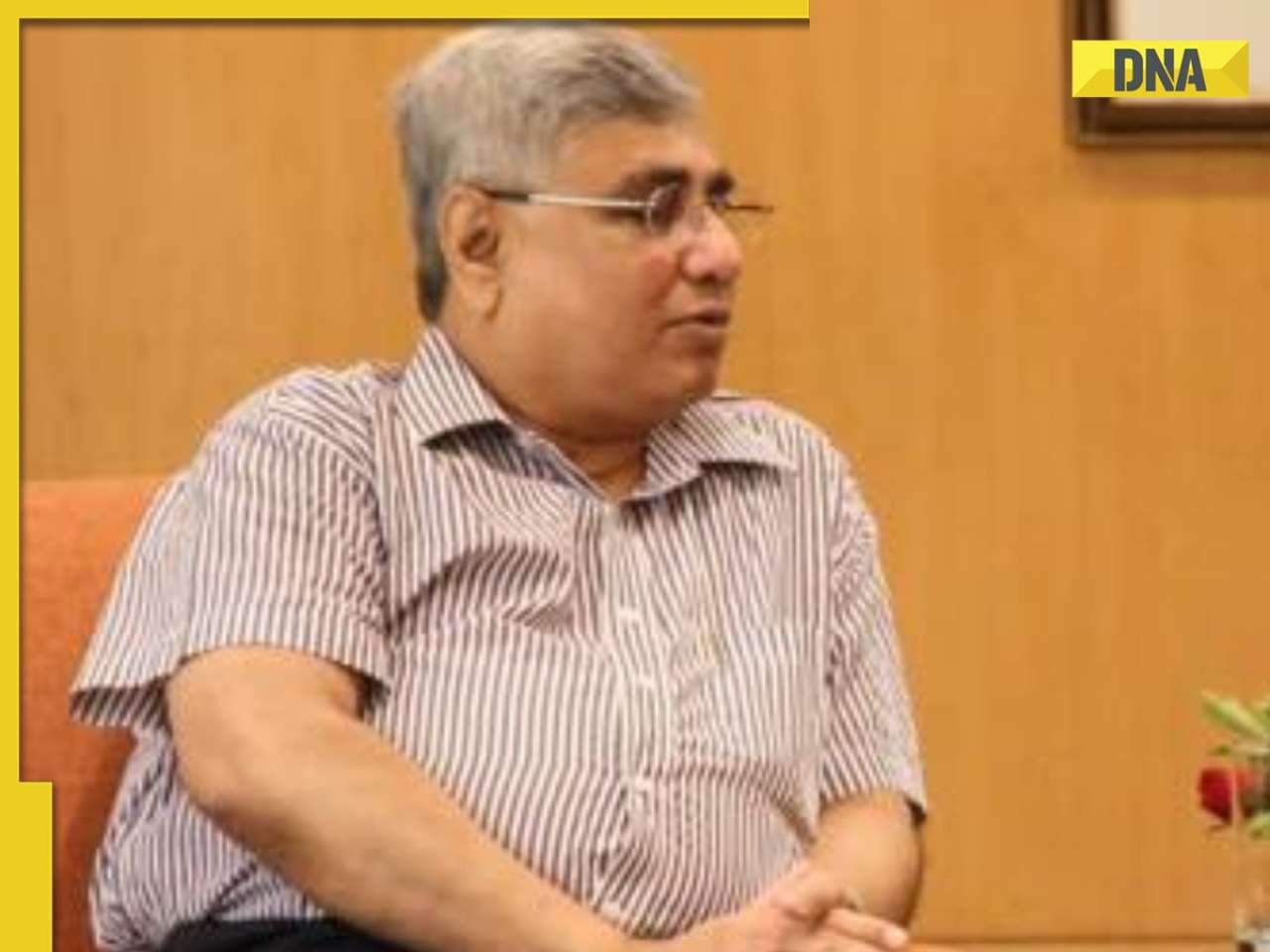In the last one year prices of essential commodities have risen by anything between 0-30%, leaving homemakers struggling to balance their budgets.
“Sonia Gandhi does not have to run a household. She doesn’t go to the market to buy things for her house. So how can we expect her to know how badly we are hit,” says an exasperated Chetna, anchor with an FM channel in Lucknow.
A dream budget from a finance minister keen to leave his mark in an election year; a bonanza for 45 lakh central government employees recommended by the Sixth Pay Commission; rising pay packages in the private sector. All signs that India is shining…yet, India isn’t smiling. Here’s why.
In the last one year prices of essential commodities have risen by anything between 0-30%, leaving homemakers struggling to balance their budgets and the government grappling with a dissatisfied electorate.
A mood summed up by a bitter Malleswari Devarakonda, a bank employee in Hyderabad: “Every party talks of bringing down prices of essential commodities when in opposition, but when in power they forget about it.” And Rajeev Gupta, who runs a provision store in Lucknow: “Manmohan Singh and Chidambaram are experts on economics. What are they doing?”
Voices that find an echo in every household in the country—keeping the powers that be on the edge. After all, it was the price of just one commodity—onions—that reduced the BJP to tears in two state elections in 1998.
Food prices usually rise more in summer, but the wholesale price index (WPI) last week was at an 11-month high of 5.92%, entering a politically sensitive zone. And food prices are at the heart of the problem, with prices of pulses in particular accelerating rapidly in recent weeks.
In fact, staples like arhar and moong have increased by as much as 3 % in over just one week, gram by 3 % and masur and urad by 2%. Oilseeds are also on the climb, reinforced by surging global prices of major edible oils. Prices of coconut and mustard oil are up 3%. Imported edible oil prices have increased by 4%.
Consumer price data with the Price Monitoring Cell, Department of Consumer Affairs, Delhi for February 8, 2008 reveal a one-year increase of 13% for rice, 8% for wheat and well over 20% in prices of various edible oils.
These developments do not bode well for the average consumer like Chhaya Diwanjee, a Bangalore housewife. “For every Rs100 hike in salary, prices go up by Rs150. Auto fares have gone up by 20% and milk price by 25%. I have cut down oil consumption by a litre every month.”
Among the hardest hit are people like Manjushree Dilip Gaikwad. Manjushree, a worker in a small-scale enterprise in Pune, whose husband is an auto rickshaw driver, has two sons and a daughter. “All the money earned is spent on purchasing essential commodities. We save almost nothing,” she says.
And with chilli production in the country likely to miss the projected target of 12 lakh tonnes in 2007-08, and be lower than last year’s level thanks to untimely rains, home budgets will have more reason to bleed.
Sheena Verma, a 38-year-old homemaker and Borivili resident laments, “Something as basic as lemon costs Rs10 for three pieces.”
From Pune to Patna and Srinagar to Kerala, it’s the same story. Some, like homemaker B Sujata, of Hyderabad’s Chintala basti and Fayaz Ahmad, a government official in Srinagar, plan to scale down celebrations.
“At this rate I cannot buy sweets and clothes for the family this Ugadi (Telegu new year) if I want to feed the family throughout the month,” says Sujatha. Fayaz is contemplating doing away with the reception for his marriage next month. “Prices of every commodity are touching the sky. I sometimes think I should cancel the party,” he says.
Forget rise, pay the price
Of course, salaries are rising, but they provide little consolation. Ask Rajshekhar Kalagare, 29, senior finance analyst with a Bangalore IT firm.
“Even with a hike in salary, which I expect to be around 15% this year, one cannot save more because of the hike in prices of essentials.” Agrees Kochi accountant Bindu Joseph: “Salary hikes merely help me cope with rising prices.”
Fire-fighting
The government says it is aware of the situation. In its annual report for 2007-08, released on March 19, the finance ministry said “containing of inflation is high on the government agenda”.
Last week the government banned exports of all cooking fats or a year. It has also curbed exports of rice, wheat and lentils, and banned futures trading in some commodities to slow inflation before the general elections due in May 2009. The government also announced plans to cut import duties on palm oil to ensure adequate domestic supplies and curb inflation.
Money for nothing
But what Delhi homemakers Anita Mahajan and Suhasini Chelaramani, Srinagar teacher Haseena Nazir and Lucknow shopkeeper Rajeev Gupta want are results, not mere reassurances.
“Tomatoes, onions and cauliflowers are luxuries. You can’t buy more than two kg in Rs100,” Anita grumbles. Haseena finds the inflation has stolen the aroma from her Bemina, Srinagar home. “The small vegetable oil canister which I would buy for Rs200 is now more than Rs300.”
A piqued Suhasini says, “The government boasts of working for the aam aadmi but has hardly done anything to contain rising prices. Prices of pulses have increased by over Rs15 per kg in the past two years, ditto for rice and flour.”
Commission of hope
Some homemakers like Anuradha, wife of a Haryana government official in Chandigarh, had switched to retail outlets like Subhiksha hoping they would get better bargains than from the grocer. But rising prices, especially of cooking oils, have hit them hard too.
“The pay commission will come into effect whenever it does, but at the moment it is difficult to manage home,” she says. She has good reason to be upset. While prices of vegetable oil in Chandigarh have risen from Rs55 per litre last March to Rs82 per litre, sunflower oil has gone up to Rs100 per litre.
Also banking on the pay commission is Sadhna Srivastava. The Patna homemaker doesn’t remember grocery prices being so high ever in 20 years of marriage. The wife of a government official says what hits hardest is price of mustard oil, which has touched the roof at Rs85 per litre.
Brewing trouble
Ahmedabad-based graphic designer Nidhi Kansara discovered her tea will be costlier because milk prices are up by Rs2 per litre. “Now I am looking forward to a rise in my salary next month to be able to enjoy this luxury,” she says.
Sushma Bhattacharya, a Kolkata teacher, also complains about how rising milk prices have made her morning brew costlier. “The price of skimmed milk has risen to Rs31 from Rs25 a litre.” Like any Bengali, she loves her shorshe ilish (hilsa cooked in mustard oil), but soaring mustard oil prices, up to Rs90 from Rs 75 a year back, are leaving a bitter taste.
Vendors feel the heat too
Vendors are taking the hit as well. Dayaram Choudhary, proprietor of Rajmoti Traders in Karvenagar, Pune informs that prices of rice and edible oil have increased significantly in last six months, which has led consumers to curtail their expenses.
“Most of our regular customers have started cost cutting. As a result, even our budgets are getting disturbed. People don’t even buy milk, eggs and bread regularly now,” said Anuj Yadav, a grocery store owner in Delhi’s Manglapuri area.
Sahil Ahmad, who runs Sagar provision store at Srinagar’s Maharaja Bazaar, also admits sales have slumped. But the Bihar Retail Dealers’ Federation is not surprised by the price hike. Ramesh Chandra Talreja, General Secretary of the Federation told DNA that they could foresee it but the government did not.
Industry concerned
Not surprisingly, the food industry is feeling the effects too. Kolkata-based ITC’s food divison is weighing its options. “Input prices have increased significantly and this has impacted the entire food industry adversely. We are examining the possibility of re-aligning prices after studying the impact on consumers as well as the competitive scenario in the industry,” said a spokesperson.
A Britannia spokesperson told DNA: “The prices of key agri commodities have continuously risen for the past two years. This has impacted industry due to an immoderate and concurrent increase of approximately 20%-25% in market prices of all key commodities like flour, refined palm oil, skimmed milk powder.”
The opportunity is not lost on the opposition. The United National Progressive Alliance plans to launch a national level public awareness campaign to highlight the failure of the Centre in controlling inflation. It will hold a workshop on rising prices in Delhi on April 16.
And the government realizes that four years of booming economy and over 50% returns from investments can be forgotten because of the rise in household budgets. Welcome to the ‘onion economy”.
With inputs from
Puneet Nicholas Yadav (New Delhi), Madhumita Mookherji (Kolkata), Jyoti Shelar (Mumbai), Don Sebastian (Kerala), Sanjay Singh (Patna), Himansh Dhomse (Ahmedabad), Deepak Gidwani (Lucknow), Bhargavi Kerur Bangalore), Ishfaq-ul-Hassan (Srinagar), Dinesh Thite (Pune), Ajay Bharadwaj (Chandigarh) and Subhashish Mohanty (Orissa)
![submenu-img]() Viral video: Kind man assists duck family in crossing the road, internet lauds him
Viral video: Kind man assists duck family in crossing the road, internet lauds him![submenu-img]() Can you see the Great Wall of China from space? here's the truth
Can you see the Great Wall of China from space? here's the truth![submenu-img]() Ashutosh Rana breaks silence on his deepfake video supporting a political party: 'I would only be answerable to...'
Ashutosh Rana breaks silence on his deepfake video supporting a political party: 'I would only be answerable to...'![submenu-img]() Meet India's most talented superstar, is actor, dancer, stuntman, singer, lyricist; not Ranbir, Shah Rukh, Aamir, Salman
Meet India's most talented superstar, is actor, dancer, stuntman, singer, lyricist; not Ranbir, Shah Rukh, Aamir, Salman![submenu-img]() This flop film was headlined by star kid, marked south actress's Bollywood debut, made in Rs 120 crore, earned just...
This flop film was headlined by star kid, marked south actress's Bollywood debut, made in Rs 120 crore, earned just...![submenu-img]() DNA Verified: Is CAA an anti-Muslim law? Centre terms news report as 'misleading'
DNA Verified: Is CAA an anti-Muslim law? Centre terms news report as 'misleading'![submenu-img]() DNA Verified: Lok Sabha Elections 2024 to be held on April 19? Know truth behind viral message
DNA Verified: Lok Sabha Elections 2024 to be held on April 19? Know truth behind viral message![submenu-img]() DNA Verified: Modi govt giving students free laptops under 'One Student One Laptop' scheme? Know truth here
DNA Verified: Modi govt giving students free laptops under 'One Student One Laptop' scheme? Know truth here![submenu-img]() DNA Verified: Shah Rukh Khan denies reports of his role in release of India's naval officers from Qatar
DNA Verified: Shah Rukh Khan denies reports of his role in release of India's naval officers from Qatar![submenu-img]() DNA Verified: Is govt providing Rs 1.6 lakh benefit to girls under PM Ladli Laxmi Yojana? Know truth
DNA Verified: Is govt providing Rs 1.6 lakh benefit to girls under PM Ladli Laxmi Yojana? Know truth![submenu-img]() Aamir Khan, Naseeruddin Shah, Sonali Bendre celebrate 25 years of Sarfarosh, attend film's special screening
Aamir Khan, Naseeruddin Shah, Sonali Bendre celebrate 25 years of Sarfarosh, attend film's special screening![submenu-img]() Alia Bhatt wears elegant saree made by 163 people over 1965 hours to Met Gala 2024, fans call her ‘princess Jasmine’
Alia Bhatt wears elegant saree made by 163 people over 1965 hours to Met Gala 2024, fans call her ‘princess Jasmine’![submenu-img]() Jr NTR-Lakshmi Pranathi's 13th wedding anniversary: Here's how strangers became soulmates
Jr NTR-Lakshmi Pranathi's 13th wedding anniversary: Here's how strangers became soulmates![submenu-img]() Streaming This Week: Heeramandi, Shaitaan, Manjummel Boys, latest OTT releases to binge-watch
Streaming This Week: Heeramandi, Shaitaan, Manjummel Boys, latest OTT releases to binge-watch![submenu-img]() Remember Ayesha Kapur? Michelle from Black, here's how actress, nutrition coach, entrepreneur looks after 19 years
Remember Ayesha Kapur? Michelle from Black, here's how actress, nutrition coach, entrepreneur looks after 19 years![submenu-img]() Haryana Political Crisis: Will 3 independent MLAs support withdrawal impact the present Nayab Saini led-BJP government?
Haryana Political Crisis: Will 3 independent MLAs support withdrawal impact the present Nayab Saini led-BJP government?![submenu-img]() DNA Explainer: Why Harvey Weinstein's rape conviction was overturned, will beleaguered Hollywood mogul get out of jail?
DNA Explainer: Why Harvey Weinstein's rape conviction was overturned, will beleaguered Hollywood mogul get out of jail?![submenu-img]() What is inheritance tax?
What is inheritance tax?![submenu-img]() DNA Explainer: What is cloud seeding which is blamed for wreaking havoc in Dubai?
DNA Explainer: What is cloud seeding which is blamed for wreaking havoc in Dubai?![submenu-img]() DNA Explainer: What is Israel's Arrow-3 defence system used to intercept Iran's missile attack?
DNA Explainer: What is Israel's Arrow-3 defence system used to intercept Iran's missile attack?![submenu-img]() Ashutosh Rana breaks silence on his deepfake video supporting a political party: 'I would only be answerable to...'
Ashutosh Rana breaks silence on his deepfake video supporting a political party: 'I would only be answerable to...'![submenu-img]() Meet India's most talented superstar, is actor, dancer, stuntman, singer, lyricist; not Ranbir, Shah Rukh, Aamir, Salman
Meet India's most talented superstar, is actor, dancer, stuntman, singer, lyricist; not Ranbir, Shah Rukh, Aamir, Salman![submenu-img]() This flop film was headlined by star kid, marked south actress's Bollywood debut, made in Rs 120 crore, earned just...
This flop film was headlined by star kid, marked south actress's Bollywood debut, made in Rs 120 crore, earned just...![submenu-img]() India's most successful star kid was superstar at 14, daughter of tawaif, affair with married star broke her, died at...
India's most successful star kid was superstar at 14, daughter of tawaif, affair with married star broke her, died at...![submenu-img]() India's biggest flop actor, worked with superstars, married girl half his age, once left Aamir's film midway due to..
India's biggest flop actor, worked with superstars, married girl half his age, once left Aamir's film midway due to..![submenu-img]() England pace legend James Anderson set to retire from Test cricket after talks with Brendon McCullum
England pace legend James Anderson set to retire from Test cricket after talks with Brendon McCullum![submenu-img]() IPL 2024: Shubman Gill, Sai Sudharsan centuries guide Gujarat Titans to 35-run win over Chennai Super Kings
IPL 2024: Shubman Gill, Sai Sudharsan centuries guide Gujarat Titans to 35-run win over Chennai Super Kings![submenu-img]() KKR vs MI IPL 2024: Predicted playing XI, live streaming details, weather and pitch report
KKR vs MI IPL 2024: Predicted playing XI, live streaming details, weather and pitch report![submenu-img]() 'It's ego-driven...': Ex-RCB star on Hardik Pandya's captaincy in IPL 2024
'It's ego-driven...': Ex-RCB star on Hardik Pandya's captaincy in IPL 2024![submenu-img]() BCCI to advertise for Team India's new head coach after T20 World Cup
BCCI to advertise for Team India's new head coach after T20 World Cup![submenu-img]() Viral video: Kind man assists duck family in crossing the road, internet lauds him
Viral video: Kind man assists duck family in crossing the road, internet lauds him![submenu-img]() Can you see the Great Wall of China from space? here's the truth
Can you see the Great Wall of China from space? here's the truth![submenu-img]() Mother bear teaches cubs how to cross a road with caution, video goes viral
Mother bear teaches cubs how to cross a road with caution, video goes viral![submenu-img]() Meet the tawaif, real courtesan of Heeramandi, was once highest paid item girl, was killed by....
Meet the tawaif, real courtesan of Heeramandi, was once highest paid item girl, was killed by....![submenu-img]() Mukesh Ambani’s old image with billionaire friends go viral, Harsh Goenka makes joke of…
Mukesh Ambani’s old image with billionaire friends go viral, Harsh Goenka makes joke of…























































)
)
)
)
)
)